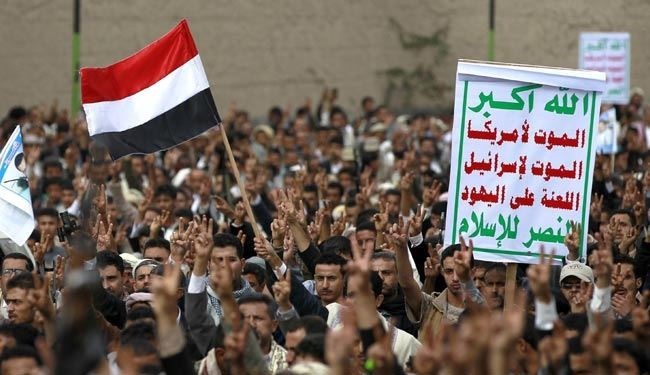Speaking to the website of the Strategic Council on Foreign Relations, Hassan Lasjerdi said the “Victory from God” Operation was significant in several respects, adding: “The operation was carried out prior to the Aramco attacks but its announcement was postponed to after Aramco strikes. It could be said that the operation was in some way preparation of the ground for a larger incident, namely the attacks on Aramco.”
“The second point is the extent of casualties and losses inflicted on the Saudis in this operation. Big figures (in thousands) on human losses and prisoners of war as well as huge amounts of military equipment were said to have been inflicted on the Saudis. Considering the modification and filtration of the news on this operation, it was neither so small not to fit those figures nor so irrelevant to underestimate the strength of the Yemeni forces. But it seems that the original figures were announced by certain media outlets who wanted to cast doubt on the operation or at least create suspicion in the audience.”
The third point was the impact of the operation on Yemeni developments, given that in recent months we have seen favorable events in Yemen such as the UAE’s troop withdrawal and the UN approach that seeks peaceful trends such as Iran-Saudi disputes where both parties are blaming each other. It seems this great development has cleared the road towards the future events in Yemen.
This member of khabaronline.ir editorial board said: “If we take a look at the Saudi-affiliated media, we will find out that Riyadh tried to claim nothing had happened and by managing the scene attempted to evade its effects on its troops. But after the release of images, figures and information of this major operation in the media Riyadh tried to say the casualty figures and losses were insignificant given the years of fighting they had carried out and the amount of forces they had deployed and the casualties they had suffered from the Yemenis, these numbers were insignificant.
“Although Saudi Arabia tried to manage the situation, it was not successful because world public opinion could see the events and access their images,” said Lasjerdi. That is why the process of Saudi Arabia’s desire to find a peaceful way is increasing day by day.
He also added that the outlooks on the management and command of the operation must also be taken into consideration. He added: “There were some words from the PoWs that the Saudis had not made resourceful planning so that they could pull out their forces in the heavy operations and left some forces on the scene without feeling responsibility about them.
The analyst noted “Saudi Arabia tried very hard to portray the Victory from God operation as small and sectional and lacking effective military standards, but the passage of time has shown that this is not the case. In fact, both the geography of the operation was very large and the number of PoWs and human casualties and logistics losses were high. The operation has had a positive impact on the Yemeni people and revolutionaries; on the other hand it has had a significant impact on the future of Yemen’s developments.
Asked about the ceasefire in Yemen, Lasjerdi said: “It seems that Ansarollah has been demanding a ceasefire several times and has been involved in negotiations in Geneva and elsewhere.”
He said that it is not like Ansarollah did not want the war to end and merely sought war and conflict, noting: “In developments where competition is unequal and the two sides have two different positions if the balance is not achieved and operations and the war are in favor of just one side it will never stop short of that war. So the Yemeni popular forces and the army in the last one or two years have tried to create a positive balance in military developments so that they can at least speak up and gain a foothold in the eyes of their own enemy, the Arab coalition. Promoting the Yemeni army and popular forces’ use of military equipment spontaneously created a tendency toward a ceasefire and a peaceful solution.”
“In the current situation, it seems there are signs the two sides are ready to negotiate and somehow get out of this situation,” he said. The withdrawal of the UAE from the coalition and not from Yemen has increased Saudi Arabia’s desire for an end to the war. Staying alone in Yemen and increasing international pressure and upgrading the military capabilities of the Yemeni army and civilian forces have had its effect on Saudi Arabia. Yemenis have long been able to attack military centers. They attacked Aramco and pursue their goals of sending drones. This spontaneous promotion can cause a balance of terror in the opposite party and make it worried. These issues have exacerbated Saudi Arabia’s desire to find a solution agreed to both sides.
Asked about the reasons why there was no information dissemination at the time of the operation, he said: “The Aramco operation was somehow a complement to this operation and dealt a bigger blow with a larger space. It seems in terms of military behavior and words the Yemenis are right in saying Aramco operation happened later.”
“If they had announced the operation sooner, Saudi Arabia would certainly react and try to find a way to counteract by inflicting a heavier blow,” he said.
Lasjerdi said Yemen faces restrictions in information dissemination such as access to the Internet due to lack of access to the necessary tools for information dissemination. “The military tactics adopted by the Yemenis to disclose information after designing and implementing a series of operations should also be considered,” he said. Because of these problems, Saudi Arabia has been forced to think about ending this conflict and look for a solution.










0 Comments